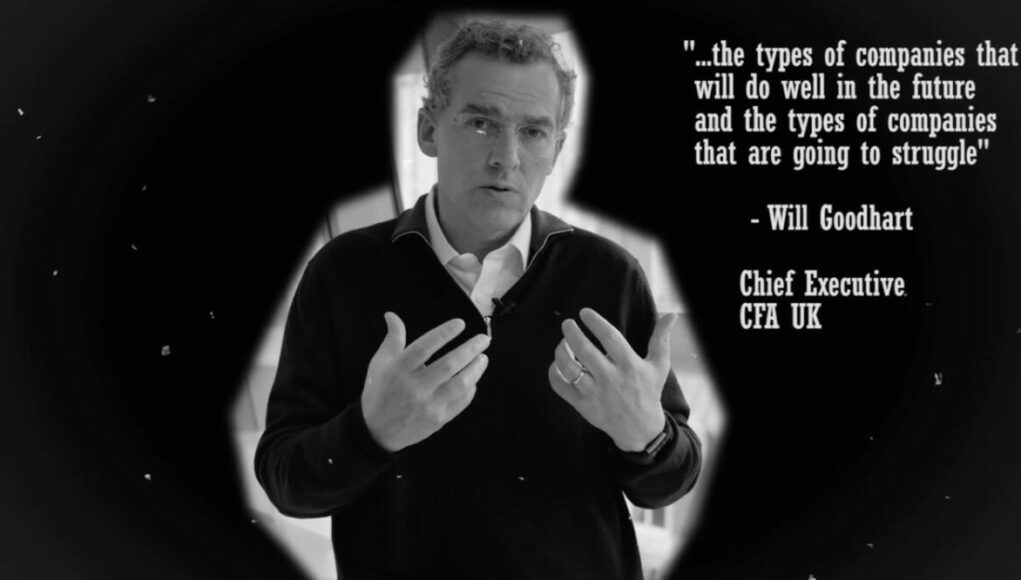INSIGHT by Will Goodhart, CEO of the CFA Society UK, the awarding body for the new Certificate in ESG Investing and Board member at the Impact Investing Institute
| Last week’s City of London/World Economic Forum Green Horizons Summit clarified beyond any doubt the need for the finance sector to play a leading role in addressing climate change and fired the starting gun on the UK’s road to COP26.
Not only did the Chancellor’s announcement that the UK will start to issue Green Gilts from 2021 and will require TCFD disclosures by 2025 reinforce the positioning of climate action as a core element of investment decision-making, but the event also saw the publication of two key reports on how the private finance system might best approach its role in funding the transition to net zero and on how portfolios might be climate action-aligned and measured on their degree warming.
Policy, regulation and practice are changing rapidly to meet the urgency of the climate crisis, creating risks and opportunities for investment professionals. Managing those risks and assessing and capturing those opportunities will require investment professionals to be knowledgeable and skilful with respect to climate. We’re not there yet.
| Momentum is building
There is a growing understanding of the importance of the impact of climate change. 46% of respondents to a recent CFA Institute survey described understanding climate as ‘very important’ in order to manage investment effectively. There is also a growing body of investment professionals that are capable of integrating ESG factors into investment processes, but there are fewer investment professionals that can do the same around the escalating challenges of climate.
That skills gap is unsurprising. Climate change is complex. The science isn’t always easy and interpreting the potential impacts of climate change requires a facility with new frameworks and data sets. Some aspects of ESG integration were new to investment professionals, but most were already focused on governance and it wasn’t hard to understand the effect that adverse environmental or social events could have on a company’s balance sheet or cashflows.
ESG factors are comparable to other factors that need to be taken into account in doing the bottom-up work to value a company.
Climate change is not just complex, it is also different. The effects are systemic and require a systemic approach from investment professionals. That leads to a need for new knowledge and new skills. Alongside other signatories to the Green Finance Education Charter, CFA UK has been working to develop qualifications and programming to help investment professionals prepare for and serve their clients well within the transition to net zero. Our Certificate in ESG Investing has already had close to 3,500 registrations and we are working to globalise it through CFA Institute. We are also now working on a Certificate in Climate and Investment to complement the ESG certificate.
The CFA UK certificate in climate and investing will cover climate science, the conceptual framework, the risks, regulation, policy & reporting, impacts and opportunities, stewardship and engagement and what climate change means for asset classes across public and private markets and for portfolio construction. We’ll be talking about this in our event on Wednesday (as part of London Climate Action Week) on the transition to net zero.
| The investment profession’s responsibility – and opportunity
The need for sustainable skills building was also the message that I was pleased to share with attendees at the City of London/WEF Green Horizons summit. As the Lord Mayor noted at the event, ‘We have yet to reach a future in which every financial decision takes climate change into account, a future in which national and corporate transition plans are clear and capitalised, or a future in which green finance is simply called finance’. We may not yet be at that point, but we are on our way.
The responsibility that the investment profession will bear is large in terms of scale and significance. The good news is that when we meet that responsibility, we will have reshaped the way that society sees and appreciates investment. We will have steered our clients’ capital away from stranded, carbon-heavy assets and towards the opportunities offered by new technologies, addressing the climate crisis while remaining aware of the need for a ‘just transition’.
To get this right, we need to build our skills and knowledge and to share good practice. CFA UK looks forward to playing its part and to working with CFA Institute and all other members of the global CFA network to make this happen.
| brief bio
Will Goodhart is chief executive of the CFA Society of the UK (CFA UK) – the awarding body for the new Certificate in ESG Investing. He is also a Board member at the Impact Investing Institute – where he has led the development of a learning framework – of the Diversity Project’s steering committee and the BSI’s sustainable finance advisory group.
| All opinions expressed are those of the author. investESG.eu is an independent and neutral platform dedicated to generating debate around ESG investing topics.








